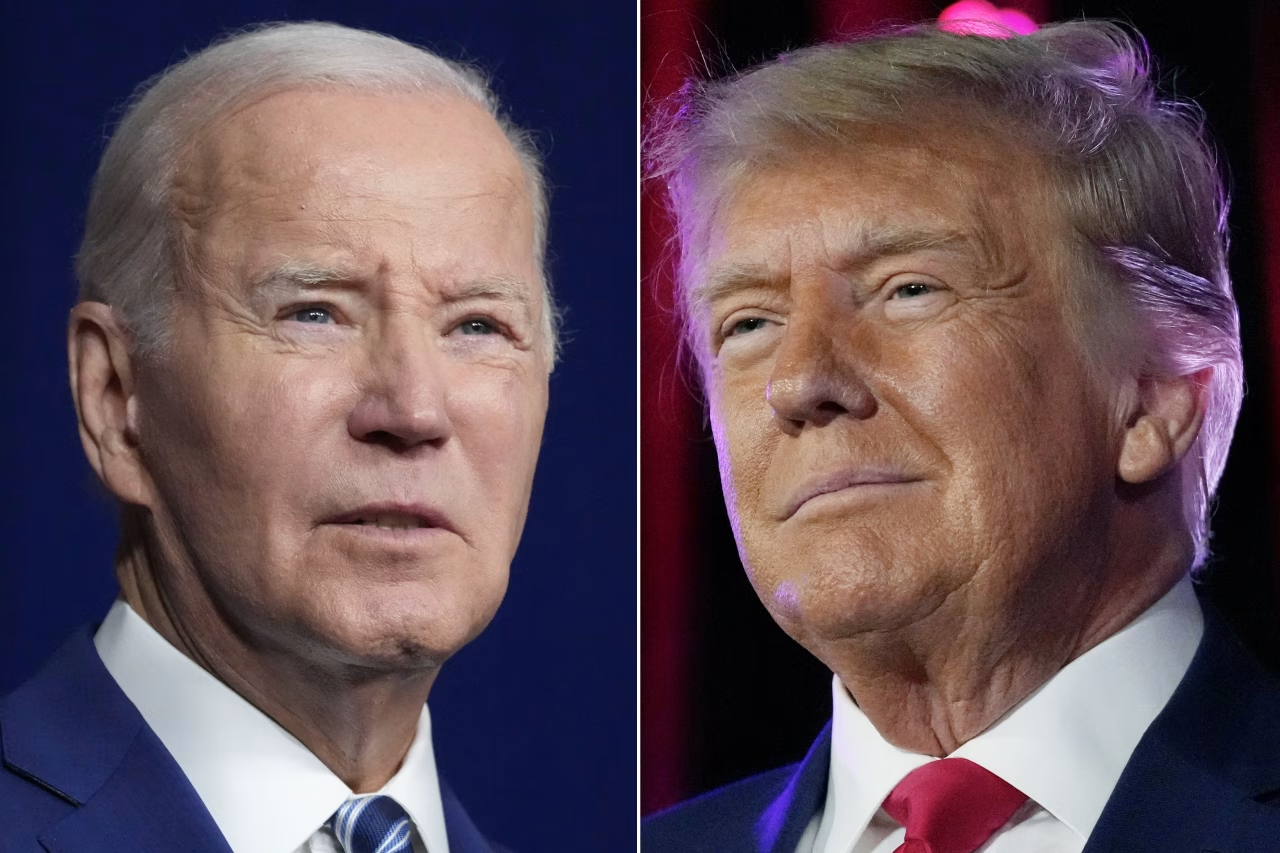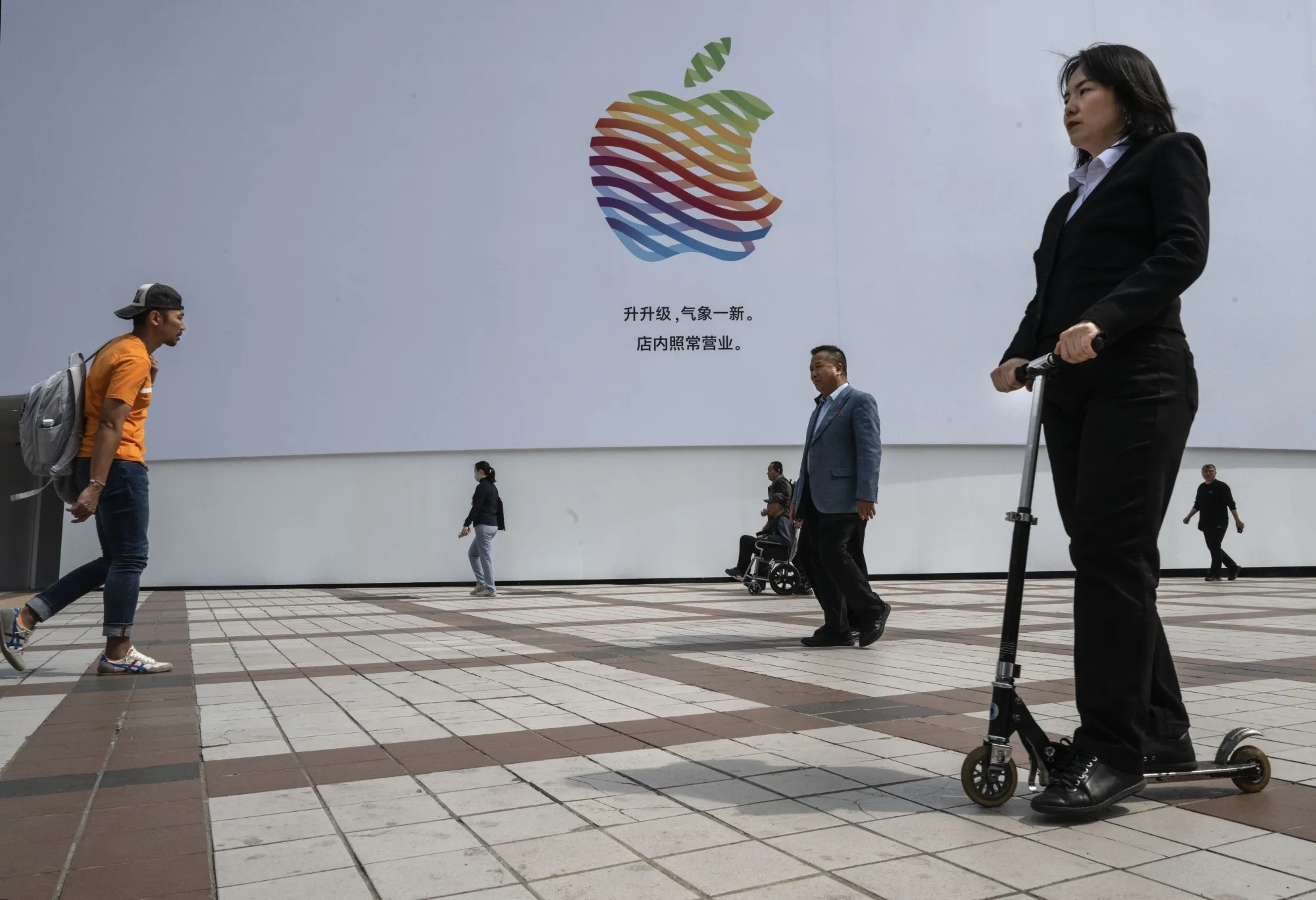
Peter Zeihan: It’s Recession Time
From Peter Zeihan: What do you get when you mix overly aggressive trade measures and a poor economic plan? Trump’s idea of a great start.…
Thought Leader: Peter Zeihan

Despite their political differences, Donald Trump and Joe Biden seem to agree on economics. Both believe the White House should direct the American economy by favoring companies and courtiers. Younger potential leaders from both parties with 2028 ambitions should be positioning themselves as alternatives to Trump-and-Biden-omics.
Presidents Trump and Biden have been big spenders, exploding the national debt. Both erected barriers to trade to protect friendly interests, which were then supposed to dance to presidential tunes. Both viewed the U.S. economy nostalgically and favored older industries. Mr. Trump ignores America’s competitive edge in the services trade, and Mr. Biden embraced the progressive wing’s suspicion of tech.
Neither recognized that trade negotiations should establish rules to help the country’s most vibrant and growing sectors. Their international economic policies presume a zero-sum, old-style mercantilist fight to divide wealth among nations, instead of enabling markets to enlarge win-win gains. Mr. Biden blocked foreign direct investments to please unions, while Mr. Trump opts for “golden shares” and partial corporate nationalization.
Messrs. Trump and Biden financed their industrial policies through bigger deficits. Easy monetary policies hid the increased expense. But we are now entering an era of rising costs, higher prices, pressures on productivity, and nervousness about debt financing and the dollar. Just as the U.S needs to increase defense spending and modernize its forces, Washington’s interest on the debt matches the nation’s military budgets. Economic reckonings are looming.
After the Trump-Biden era fades into history, which party will offer an alternative to costly, backward-looking industrial policies? While Vice President JD Vance lectures Europeans on democracy and philosophizes about state-led capitalism, some up-and-coming Republican might stand out by steering the GOP toward a vision of entrepreneurial growth and opportunity. Similarly, the next Democratic leader must do more than attend protest rallies and kowtow to failed progressive dictates. Spouting that Mr. Trump’s tariffs are bad while Democratic tariffs are good won’t help. America’s purpose has to be more than making deals that don’t last, spending money we don’t have and feathering the nests of presidential offspring.
There’s no shortage of signature issues for candidates. Many Americans are baffled and embarrassed by President Trump’s bullying of our Canadian and Mexican neighbors. As Ronald Reagan explained when launching his campaign in 1979, the U.S. would be better off if both countries were stronger rather than weaker. Reagan even added that we should stop treating our nearest neighbors as foreigners. A stronger North America would be a more powerful global competitor and better armed to address continental problems such as illegal immigration, narcotics and crime, security, and the environment. By contrast, picking a senseless fight with our major trading partners will drive up costs of lumber and housing, cars, and food.
Americans want order at the country’s borders and recognize that the broken asylum system needs stricter rules. But almost 80% of the public favors immigration and wants the country to be a place of promise, not prisons. Milton Friedman observed long ago that migration and an easily accessible welfare state don’t mix. But legal migration brings new talent while strengthening America’s workforce.
The U.S. should capitalize on its appeal. American universities draw talent from around the world. University boards and administrators need to reverse progressive fads and add institutes that challenge groupthink. The remedy should be through the public spotlight and private action, not federal government mandates. The U.S. should play to its national strengths: openness to ideas, people, goods, and capital, fostering continuous reinvention.
The U.S. is the best-positioned country in the world to face the challenges of energy security and additional supply while transitioning to a mix of sources that recognize climate costs. America has the resources, new technologies, entrepreneurs, and venture capital—plus unmatched capacity to integrate all four when prices drive incentives.
Public narratives shape U.S. trade policy. The disaster in the 1930s of Smoot-Hawley’s high tariffs and international retaliation created an opportunity to lower barriers over the rest of the 20th century. Stories dramatizing the Rust Belt and fears of globalization have had the opposite effect. Mr. Trump’s chaotic tariffs—reversing 80 years of greater opening at home and abroad—will raise prices and hurt U.S. competitiveness. Public dissatisfaction will make a new trade and growth agenda possible.
America’s next leader will have to restore the country’s financial credit. Following Alexander Hamilton’s foresight and foundation, U.S. credit enabled Thomas Jeffersonto buy Louisiana, preserved the Union in the Civil War, paid for victories in two World Wars and the Cold War, and countered financial crises and a pandemic. During the 1990s, political attention to deficits led to bipartisan deals that closed gaps and restored a cushion. But federal spending eliminated the buffer. A new leader could charge a bipartisan Congressional commission to make a compromise subject to an up-or-down vote; the last such effort during the Obama years failed because the president and congressional leaders wouldn’t commit to such a vote.
By 2028 Americans will be weary of trade conflicts and costs, Washington’s industrial favoritism, rising debt, and slow growth or even recession. People will be ready for a leader who solves problems, not sows division. The Republicans and Democrats who want to lead the next generation should be preparing their cases now.
Robert Zoellick’s expertise in global economics, diplomacy, and international security makes him a compelling keynote speaker for today’s most pressing geopolitical challenges. As a former World Bank president and U.S. trade representative, he offers unmatched insights into economic leverage, international negotiations, and strategic policymaking. His ability to break down complex global conflicts—like the war in Ukraine—and propose actionable solutions ensures his keynotes are both thought-provoking and highly relevant. Zoellick’s speaking engagements are managed exclusively by WWSG. To host him as your next keynote speaker, contact us.
Peter Zeihan: It’s Recession Time
From Peter Zeihan: What do you get when you mix overly aggressive trade measures and a poor economic plan? Trump’s idea of a great start.…
Thought Leader: Peter Zeihan
Patrick McGee: Apple Can’t Leave China, With or Without Tariffs
During President Donald Trump’s first term, he famously toured a Texas factory and claimed credit for bringing Apple Inc. production back to America. Except the…
Thought Leader: Patrick McGee
Michael Pillsbury: China may prep for ‘major trade war’
Michael Pillsbury, Heritage Foundation senior fellow, joins ‘The Story’ to discuss the President Donald Trump and China accusing each other of violating the 90-day tariff…
Thought Leader: Michael Pillsbury

